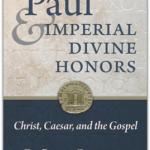Cyril O’Regan (Theology and the Spaces of Apocalyptic, 60)summarizes Bulgakov’s cautions about turning justice into the master theme of Christian witness. Bulgakov is “sensitive to the horrors that have been committed in the name of justice throughout history and proximally in the Russian Revolution. The thirst for justice all too quickly becomes indistinguishable from blood thirst and reverse hierarchy.” Further, he emphasizes the “real social historical effects of the lie or ideology.”
More theologically, he worries that justice “almost invariably inscribes an anthropological paradigm and comes to dictate the way God as well as human beings should behave.” And he is concerned about the potential “totalitarian” tendency of justice, which can obliterate concern for “the beauty of God, the beauty of the world, the beauty even of impoverishment.”
One can offer suggestions that would curb these tendencies: If justice is defined in terms of harmony, then it incorporates an aesthetic value in itself; when we emphasize that rectification comes only from the work of Christ, we might head off the danger of anthropologizing theology. It would be foolish, however, to think that anyone is immune from the dangers Bulgakov illuminates. Like other Russian thinkers, he is an essential witness, perhaps even more so since the Soviet threat is gone.















